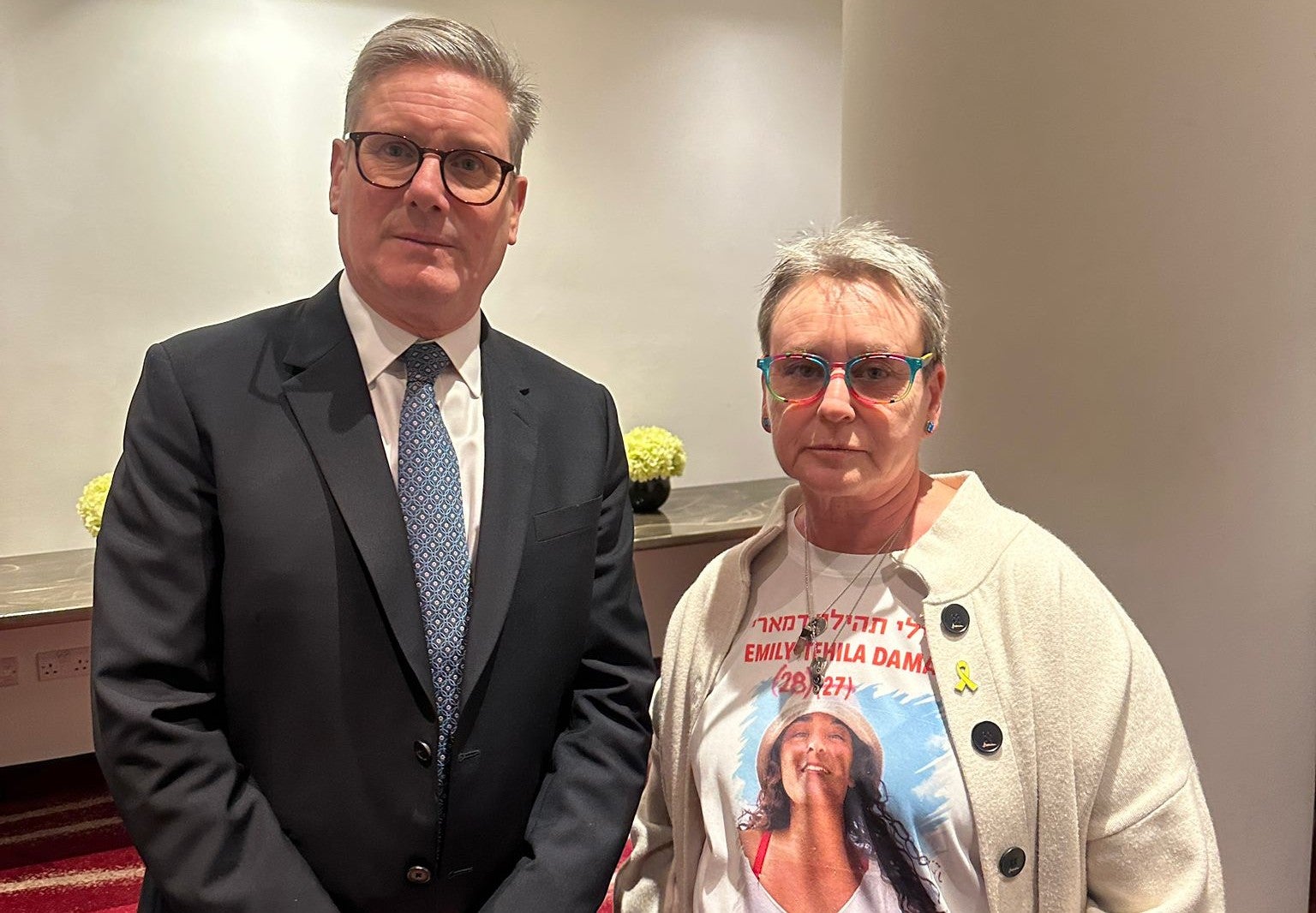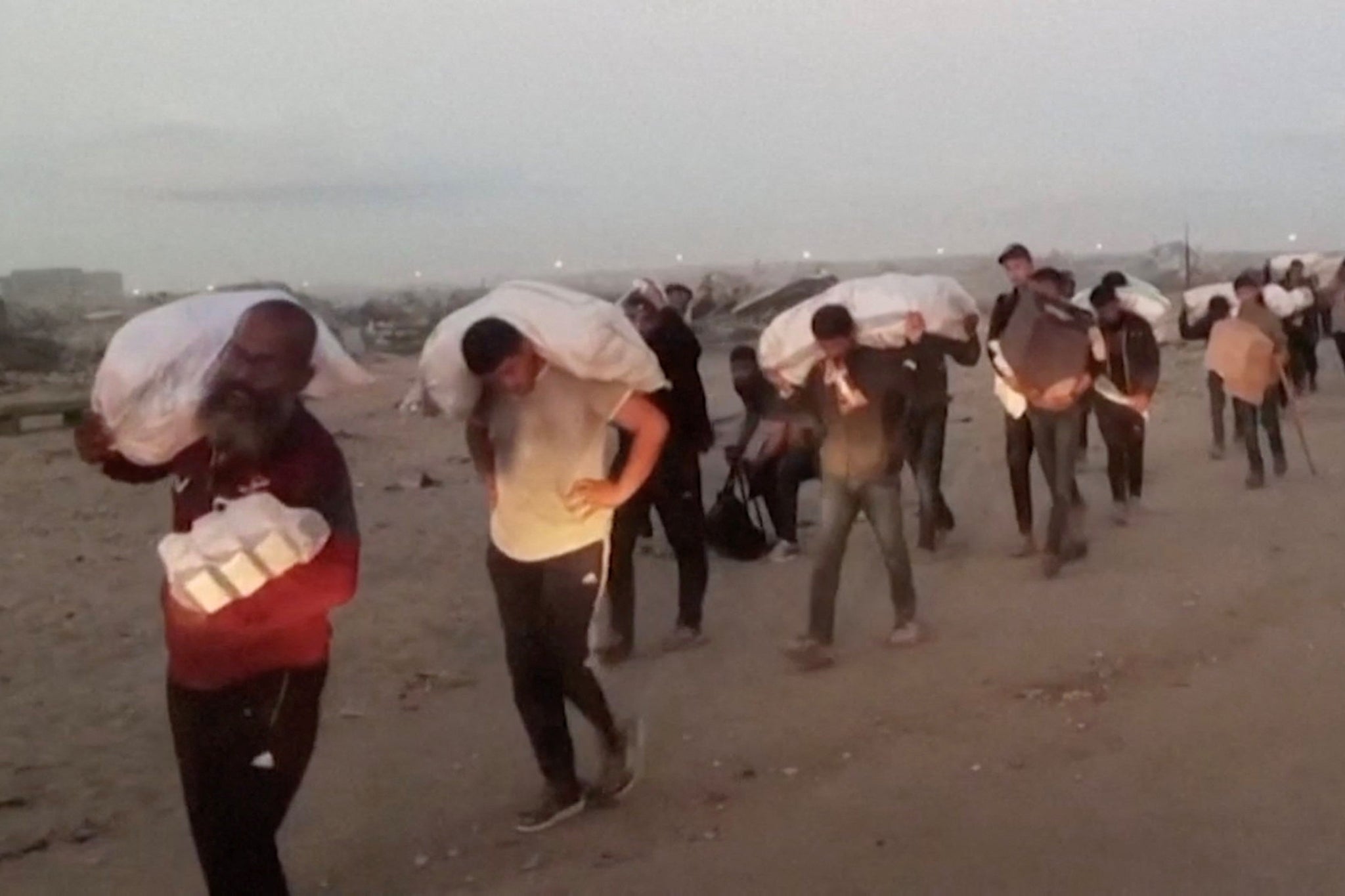Keir Starmer is being urged to keep to a pledge to support a new international coalition to “scale up” the peace process in the Middle East as the crisis in Gaza deepens.
At a major conference on the conflict last December, the prime minister said he would bring together countries to back the project that is based on an initiative that brought peace in Northern Ireland.
Then, in February, Downing Street and the Foreign Office held meetings with figures behind the coalition – The International Fund for Israeli-Palestinian Peace (IFIPP) – which would bring together people on both sides of the conflict for a two-state solution.
Now a paper by Labour Friends of Israel (LFI), seen by The Independent, has made the case for the plan again.

It comes as the row over the way Israel is controlling aid to Gaza has intensified. The United Nations is demanding an investigation into the deaths of 27 Palestinians shot dead while trying to collect aid at one of the hubs created by Israel.
The IFIPP peace project is based on the International Fund for Ireland (IFI), an instrument that helped shape the societal and political conditions leading to the Good Friday Agreement.
The prime minister knows about the impact of the IFI having served as human rights adviser to the Northern Ireland Policing Board, which supervises the Police Service of Northern Ireland (PSNI), from 2003 to 2007. In the role, he worked to ensure that the PSNI was compliant with its obligations under the 1998 Human Rights Act in the wake of the Good Friday Agreement.
IFI began its work in the late 1980s, when Northern Ireland’s Troubles were at their worst, but by pooling resources and bringing together peacemakers and young people from both communities they were able to lay the foundation for the agreement in 1999.
Now Sir Keir is under pressure to go through with his pledge made at the annual LFI lunch in December to bring together the international community to back the equivalent project aimed at ending the conflict in the Middle East.
The LFI’s new policy paper entitled “Laying the Foundations for a Two-State Solution: An International Fund for Israeli-Palestinian Peace” makes the strategic and financial case for the establishment of a dedicated multilateral fund to support Israeli-Palestinian peacebuilding efforts and calls on the UK government to take a leadership role in its creation.

The paper argues that donor states – including the EU, UK and Norway, which contribute around 60-70 percent of non-military aid to those impacted by the conflict – should pool their resources in order to pack more punch for their spending.
It states: “No single donor, especially with shrinking budgets, can alone shift the trajectory of the Israeli- Palestinian conflict.
“By pooling their limited resources into a dedicated multilateral fund, such as the International Fund for Israeli-Palestinian Peace, these states could scale up peacebuilding efforts tenfold without spending more. Such a fund would protect civil society from political volatility, align fragmented donor strategies and finally ensure funding matches the scale of the problem.”
On Sir Keir’s commitment to host an inaugural meeting of the fund, the paper also calls for the government to use that meeting to announce an initial UK funding commitment, paired with matching pledges or political endorsements from partner governments.
“British leadership will be key to unlocking coordinated international momentum,” it argues.
The paper is authored by John Lyndon, executive director of the Alliance for Middle East Peace (ALLMEP), and features a contribution by Rev Dr Gary Mason, Methodist minister and director of Rethinking Conflict, who draw on lessons from the Northern Ireland peace process.
LFI chair Jon Pearce said: “I’ve met inspiring young Israeli and Palestinian peacebuilders who are working together to build trust across divides even in the darkest times. They are not giving up on the hope of a more peaceful tomorrow, and neither should we. We must stand shoulder to shoulder with them and support their vital work through an International Fund for Israeli-Palestinian Peace.
“Civic society is stepping in where leaders are failing: creating the conditions for peace, laying foundations for political agreements, and keeping the flame alive when everything else seems impossible.
“The prime minister’s commitment at last year’s LFI annual lunch to host an inaugural meeting in London was a moment that gave these peacebuilders real hope. Britain has the skills and credibility to lead this effort – and after spending time with the incredible peacebuilding community, I know we must.”



